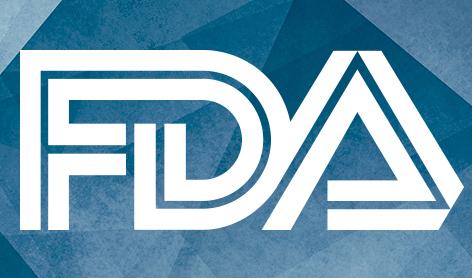MYFEMBREE Scores FDA Approval for Endometriosis Pain
On August 5, Pfizer announced the FDA's approval of relugolix 40 mg, estradiol 1 mg, and norethindrone acetate 0.5 mg (MYFEMBREE) for the management of moderate to severe pain associated with endometriosis in premenopausal women for up to 24 months.

The US Food and Drug Administration has approved relugolix 40 mg, estradiol 1 mg, and norethindrone acetate 0.5 mg (MYFEMBREE) for the management of moderate to severe pain associated with endometriosis in premenopausal women for up to 24 months, according to a release from Pfizer.
Already approved by the FDA for management of heavy menstrual bleeding associated with uterine fibroids in premenopausal women, the latest approval for the once-daily, oral therapy, which was announced by Pfizer on August 5, is based on the results of the phase 3 SPIRIT program.
“The data from the SPIRIT studies showed the clinical benefit that relugolix combination therapy can have on moderate to severe pain associated with endometriosis and how it can impact patients,” said Linda Giudice, MD, PhD, Distinguished Professor at the University of California, San Francisco (UCSF), and Chair, SPIRIT Program Steering Committee, in the aforementioned statement. “This newly approved option for patients with pain from endometriosis offers the convenience of one pill taken once daily with a mean change in bone mineral density of less than 1% that did not appear to worsen at 12 months of treatment; however, monitoring is recommended.”
Commercialized jointly by Pfizer and Myovant, the SPIRIT program used for MYFEMBREE’s latest approval included the phase 3 SPIRIT 1 and SPIRIT 2 trials as well as the first 28 weeks of an open-label extension study among women who completed SPIRT 1 or SPIRIT 2. The SPIRT 1 and SPIRIT 2 trials included more than 1200 with pain associated with endometriosis and both studies met their coprimary endpoints of with 75% of women in the MYFEMBREE groups achieving a clinically meaningful reduction in dysmenorrhea compared with 27% and 30% of women in the placebo groups at Week 24, respectively (both P <.0001).
Other highlights from the program mentioned in the statement included the clinically meaningful reduction in nonmenstrual pelvic pain in 59% and 66% of women compared with 40% and 43% of women in the placebo groups (P < .0001). In safety analyses of these trials, headache, vasomotor symptoms, mood disorders, abnormal uterine bleeding, nausea, toothache, back pain, decreased sexual desire and arousal, arthralgia, fatigue, and dizziness were identified as adverse reactions occurring in at 3% of women treated with MYFEMBREE and greater than placebo.
The release highlights labeling for MYFEMBREE indicates use should be limited to 24 months due to the risk of continued bone loss which may not be reversible. In their release, Pfizer noted MYFEMBREE will be available in the US immediately.
“Endometriosis is a painful, chronic disease with limited therapies to manage symptoms,” said Juan Camilo Arjona Ferreira, MD, Chief Medical Officer of Myovant Sciences, Inc. “The new MYFEMBREE indication helps advance our mission to redefine care for women by helping address a disease with high unmet need, giving women and physicians a new meaningful treatment option to manage moderate to severe pain associated with endometriosis.”
The release noted MYFEMBREE carries a boxed warning related to thromboembolic disorders and vascular events. The first portion of the boxed warning underlines the increased risk of thrombotic or thromboembolic disorders including pulmonary embolism, deep vein thrombosis, stroke, and myocardial infarction, especially in women at increased risk for these events, seen with estrogen and progestin combination products, including MYFEMBREE. The second portion points out MYFEMBREE is also contraindicated in women with current or a history of thrombotic or thromboembolic disorders and in women at increased risk for these events, including women over 35 years of age who smoke or women with uncontrolled hypertension.
Additional contraindications for not specifically mentioned in the boxed warning include women with high risk of arterial, venous thrombotic, or thromboembolic disorder, pregnancy, known osteoporosis, current or history of breast cancer or other hormone-sensitive malignancies, known hepatic impairment or disease, undiagnosed abnormal uterine bleeding, or known hypersensitivity to components of MYFEMBREE.